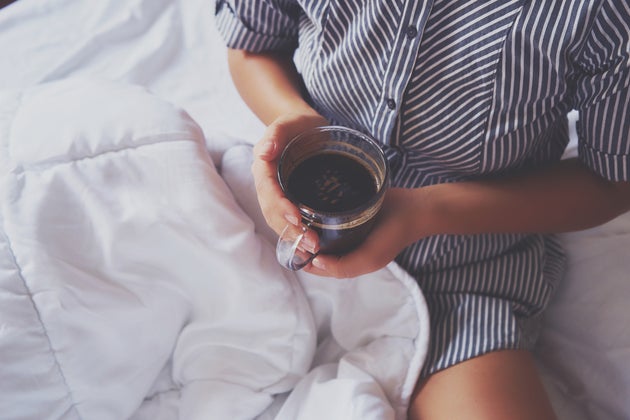Is Your Caffeine Habit Affecting Your Quality Of Sleep?


Sometimes a cup of coffee is the difference between a good or bad morning. And a warm cup after a cold run? Pure bliss. But is it having a negative affect on another part of your life that affects your running—and health?
We all know that we need sleep and that we feel refreshed after a full night of it. Could your caffeine habit be standing between you and an adequate amount of shut eye?
How Caffeine Works
According to Natalie D. Dautovich, Ph.D., Assistant Professor at Virginia Commonwealth University and the National Sleep Foundation’s Environmental Scholar, “caffeine serves to keep us awake by blocking andenosine receptors in the brain that are associated with sleep onset.”
She notes, however, that when it comes to how much caffeine someone should consume in a day, it can vary. Because there are so many individual differences in the sensitive and metabolism of caffeine, there is no specific amount across the board that people should drink.
Limit The Affects On Your Sleep
According to Dautovich, as we age, we experience a slower metabolic rate. This means that as we get older, caffeine can become a greater sleep disrupter.
So when is the latest you should have caffeine so you can still sleep well? She explains that the typical half-life of caffeine is 3 to 5 hours (and this number can vary due to the individual differences in the metabolism and sensitivity to caffeine).
Therefore, avoiding caffeine in the hours before bed is the best approach to limit the affects on your sleep. Should you have low sensitivity or metabolize caffeine quickly and find that your morning—or late afternoon—cup of coffee isn’t having an affect on your shut eye, you probably don’t have much to worry about.